Filter by
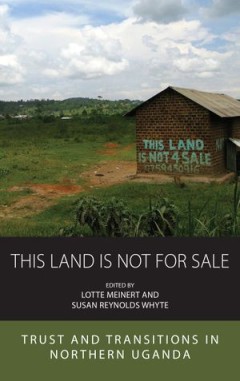
This Land Is Not For Sale : Trust and Transitions in Northern Uganda
Although violent conflict has declined in northern Uganda, tensions and mistrust concerning land have increased. Residents try to deal with acquisitions by investors and exclusions from forests and wildlife reserves. Land wrangles among neighbours and relatives are widespread. The growing commodification of land challenges ideals of entrustment for future generations. Using extended case studie…
- Edition
- -
- ISBN/ISSN
- 9781805390473
- Collation
- -
- Series Title
- -
- Call Number
- -
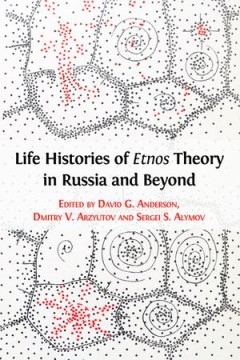
Life Histories of Etnos Theory in Russia and Beyond
The idea of etnos came into being over a hundred years ago as a way of understanding the collective identities of people with a common language and shared traditions. In the twentieth century, the concept came to be associated with Soviet state-building, and it fell sharply out of favour. Yet outside the academy, etnos-style arguments not only persist, but are a vibrant part of regional anthrop…
- Edition
- -
- ISBN/ISSN
- 978-1-78374-547-0
- Collation
- -
- Series Title
- -
- Call Number
- 3065.8 LIF
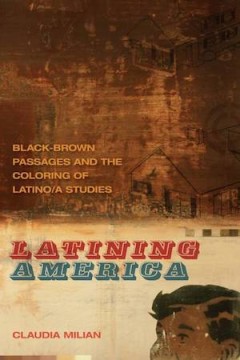
Latining America : black-brown passages and the coloring of Latino
Claudia Milian proposes that the economies of blackness, brownness, and dark brownness summon a new grammar for Latino/a studies that she names “Latinities.â€_x009d_ Milian argues that this ensnared economy of meaning startles the typical reading practices deployed for brown Latino/a embodiment. Latining America keeps company with and challenges existent models of Latinidad, demanding …
- Edition
- -
- ISBN/ISSN
- 978-0-8203-4436-2
- Collation
- -
- Series Title
- -
- Call Number
- 305.868 073 MIL l
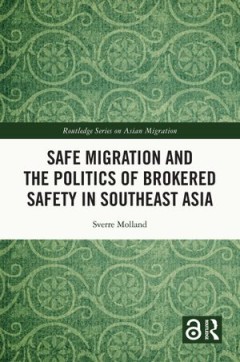
Safe Migration and the Politics of Brokered Safety in Southeast Asia
The book investigates how the United Nations, governments, and aid agencies mobilise and instrumentalise migration policies and programmes through a discourse of safe migration. Since the early 2000s, numerous non-governmental organizations (NGOs), UN agencies, and governments have warmed to the concept of safe migration, often within a context of anti-trafficking interventions. Yet, both the p…
- Edition
- -
- ISBN/ISSN
- 9781000430745
- Collation
- -
- Series Title
- -
- Call Number
- 305.8
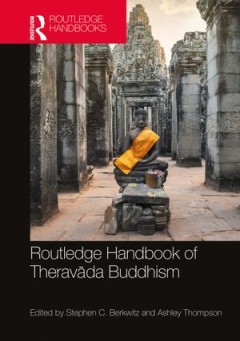
Routledge Handbook of Theravāda Buddhism
Among one of the older subfields in Buddhist Studies, the study of Theravāda Buddhism is undergoing a revival by contemporary scholars who are revising long-held conventional views of the tradition while undertaking new approaches and engaging new subject matter. The term Theravāda has been refined, and research has expanded beyond the analysis of canonical texts to examine contemporary cultu…
- Edition
- -
- ISBN/ISSN
- 9781351026642
- Collation
- -
- Series Title
- -
- Call Number
- 305.8 ROU r
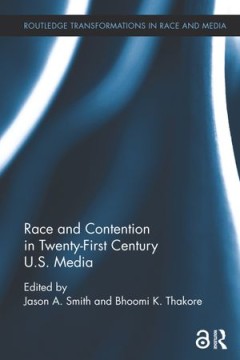
Race and Contention in Twenty-First Century U.S. Media
This volume explores and clarifies the complex intersection of race and media in the contemporary United States. Due to the changing dynamics of how racial politics are played out in the contemporary US (as seen with debates of the "post-racial" society), as well as the changing dynamics of the media itself ("new vs. old" media debates), an interrogation of the role of the media and its various…
- Edition
- -
- ISBN/ISSN
- 9781317385134
- Collation
- -
- Series Title
- -
- Call Number
- 305.8 RAC r
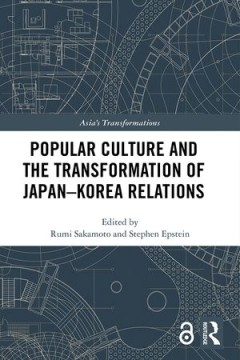
Popular Culture and the Transformation of Japan–Korea Relations
This book presents essays exploring the ways in which popular culture reflects and engenders ongoing changes in Japan–Korea relations.Through a broad temporal coverage from the colonial period to the contemporary, the book’s chapters analyse the often contradictory roles that popular culture has played in either promoting or impeding nationalisms, regional conflict and reconciliations betwe…
- Edition
- -
- ISBN/ISSN
- 9780429679896
- Collation
- -
- Series Title
- -
- Call Number
- 304.8 POP p
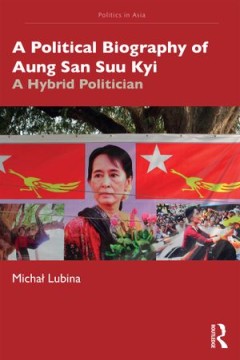
A Political Biography of Aung San Suu Kyi: A Hybrid Politician
This book is the first political biography of Aung San Suu Kyi covering both her years in opposition and all her years in power from 2016 onwards. It offers a new interpretation of Aung San Suu Kyi by presenting a balanced and thorough account of Suu Kyi’s policies. In the last 30 years there has not been a person in global politics who has risen so high and fallen so low – and so quickl…
- Edition
- -
- ISBN/ISSN
- 9781000178197
- Collation
- -
- Series Title
- -
- Call Number
- 305.8 LUB p
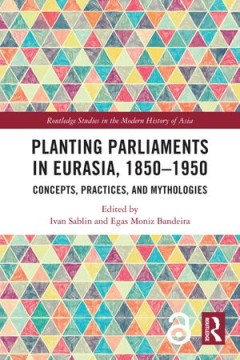
Planting Parliaments in Eurasia, 1850–1950: Concepts, Practices, and Mythol…
Parliaments are often seen as Western European and North American institutions and their establishment in other parts of the world as a derivative and mostly defective process. This book challenges such Eurocentric visions by retracing the evolution of modern institutions of collective decision-making in Eurasia. Breaching the divide between different area studies, the book provides nine case s…
- Edition
- -
- ISBN/ISSN
- 9781000393316
- Collation
- -
- Series Title
- -
- Call Number
- 305.8 PLA p
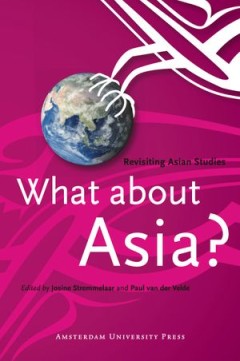
What about Asia?: Revisiting Asian Studies
What about Asia? Revisiting Asian Studies brings together scholars from Asia, Europe and America to test the strength of a field of study which, considering the rise of Asia, should be gaining momentum. But is it? This is one of the many questions that the contributors to this volume ask themselves. In the past decade the use and legitimacy of area studies, and in particular Asian studies, have…
- Edition
- -
- ISBN/ISSN
- 9789053569597
- Collation
- -
- Series Title
- -
- Call Number
- 305.8 WHA w
 Computer Science, Information & General Works
Computer Science, Information & General Works  Philosophy & Psychology
Philosophy & Psychology  Religion
Religion  Social Sciences
Social Sciences  Language
Language  Pure Science
Pure Science  Applied Sciences
Applied Sciences  Art & Recreation
Art & Recreation  Literature
Literature  History & Geography
History & Geography